Data Stories in Indian Country
December 13, 2023 | 10:00 a.m. – 3:00 p.m. CT
Virtual video event

- Full Event Video (video)
We invite you to join us December 13 for an event focused on innovative ways that Native communities, policymakers, and researchers are gathering and working with data to tell a more complete story of Indian Country. This event culminates the Center for Indian Country Development’s (CICD’s) 2023 webinar series: Cultivating Native Economies in the 21st Century. The series provides tribal leaders, policymakers, and practitioners with information they can use to strengthen and expand Indian Country economic prosperity.
Information on our communities teaches us about ourselves and helps us tell our stories. For too long, data gaps in Indian Country have masked Native economic contributions and limited policymakers’ understanding of how to best direct resources. Today, tribal governments are advancing data-collection systems on their own terms, and new partnerships between Native communities and federal agencies are increasing Native Americans’ representation in national datasets.
Our December 13 event will feature conversations with tribal leaders, policymakers, researchers, and practitioners who are strengthening their collection and use of data—in ways that honor tribal data sovereignty. Speakers working with tribal governments, Alaska Native Corporations, and Native Hawaiian Organizations will reflect on what data are still needed to provide a more complete picture of Indian Country. CICD staff will also demonstrate new data tools available for understanding local and national economic conditions and opportunities.
We hope you’ll be part of this important conversation.
Speakers include:
- Elliot Charette (Lac Du Flambeau and Red Cliff Bands of Lake Superior Chippewa), CICD, Federal Reserve Bank of Minneapolis
- Maranda Compton (Delaware Tribe of Indians), Lepwe Inc.
- Abigail Echo-Hawk (Pawnee), Seattle Indian Health Board
- Leonard “Lenny” Fineday (Leech Lake Band of Ojibwe), Leech Lake Band of Ojibwe
- Matthew Gregg, CICD, Federal Reserve Bank of Minneapolis
- Dawson Her Many Horses (Rosebud Sioux Tribe of South Dakota), Wells Fargo
- Andrew Huff (Chippewa Cree Tribe), CICD, Federal Reserve Bank of Minneapolis
- Amalea Jubara, CICD, Federal Reserve Bank of Minneapolis
- Pālama Lee (Native Hawaiian), Lili‘uokalani Trust
- Casey Lozar (Confederated Salish and Kootenai Tribes), CICD, Federal Reserve Bank of Minneapolis
- VaRene Martin (Mvskoke Nation), NAFOA
- Robert Miller (Eastern Shawnee Tribe), Sandra Day O’Connor College of Law, Arizona State University
- John Morseau (Pokagon Band of Potawatomi), CICD, Federal Reserve Bank of Minneapolis
- Rebecca Naragon (Poarch Band of Creek Indians), United South and Eastern Tribes
- Ryan Nunn, Community Development and CICD, Federal Reserve Bank of Minneapolis
- Vanessa Palmer, CICD, Federal Reserve Bank of Minneapolis
- Vanessa Roanhorse (Diné), Roanhorse Consulting, LLC
- Amber Schulz-Oliver (Yakama/Wasco), Affiliated Tribes of Northwest Indians
- Darien Siguenza (Chamorro), Hawai‘i FoundHer
- Niiyokamigaabaw Deondre Smiles (Ojibwe), University of Victoria
- Alene Tchourumoff, Community Development and CICD, Federal Reserve Bank of Minneapolis
- Robert Torzynski, Pokagon Band of Potawatomi Indians
- Lisa Watkins-Victorino (Native Hawaiian), Community partner
Event Details
Tentative Event Agenda
Wednesday, December 13, 2023 |
|
| 10:00 a.m. – 10:10 a.m. CT |
Welcome, Introductions, Blessing [Video]Speakers:
|
| 10:10 a.m. – 10:35 a.m. CT |
Fireside Chat: Our Data Moment [Video]Moderator: Casey Lozar (Confederated Salish and Kootenai Tribes), CICD, Federal Reserve Bank of Minneapolis Speaker: Dawson Her Many Horses (Rosebud Sioux Tribe of South Dakota), Wells Fargo |
| 10:35 a.m. – 10:55 a.m. CT |
Presentation: CICD Data Tools [Video]Presenters:
|
| 10:55 a.m. – 12:00 noon CT |
Panel: Tribal Census [Video]Moderator: Leonard "Lenny" Fineday (Leech Lake Band of Ojibwe), Leech Lake Band of Ojibwe Panelists:
|
| 12:00 noon – 12:45 p.m. CT |
Panel: Storytelling with Maps [Video]Moderator: Andrew Huff (Chippewa Cree Tribe), CICD, Federal Reserve Bank of Minneapolis |
| 12:45 p.m. – 1:45 p.m. CT |
Panel: Native Entrepreneurship [Video]Moderator: VaRene Martin (Mvskoke Nation), NAFOA Presenter: Matthew Gregg, CICD, Federal Reserve Bank of Minneapolis [Slides]
|
| 1:45 p.m. – 2:55 p.m. CT |
Panel: Data Stories from Across Indigenous Nations and Communities [Video]Moderator: Amber Schulz-Oliver (Yakama/Wasco), Affiliated Tribes of Northwest Indians
|
| 2:55 p.m. – 3:00 p.m. CT |
Closing Remarks [Video]Speakers:
|
Additional Resources
-
Article I Casey Lozar
-
Article I Caryn Mohr
-
Article I Matthew Gregg, Casey Lozar, and Ryan Nunn
-
Event recording I CICD
Presenter Information
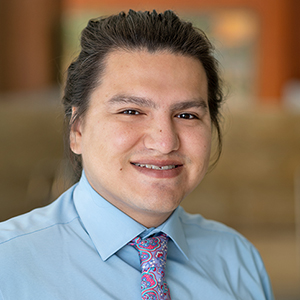
Elliot Charette
Lac Du Flambeau and Red Cliff Bands of Lake Superior Chippewa
Senior Research Assistant, CICD, Federal Reserve Bank of Minneapolis
Elliot Charette is a senior research assistant at CICD. Before joining the Bank, Charette was a staff economist for the Biden administration at the Council of Economic Advisers. At the Council, he covered issues related to macroeconomics and international trade.
Charette is currently a Ph.D. student in applied economics at the University of Minnesota Twin Cities. He is an enrolled member of the Lac Du Flambeau Band of Lake Superior Chippewa.
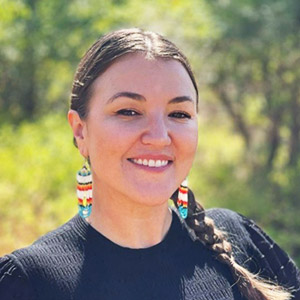
Maranda Compton
Delaware Tribe of Indians
Founder and President, Lepwe Inc.
Maranda Compton is a nationally recognized expert and frequent speaker on Native American law and policy. She is the founder and president of Lepwe Inc., a strategic consulting firm that helps tribal nations and their non-tribal partners navigate considerations associated with developing, permitting, and managing projects in Indian Country. She also serves as an adjunct professor at the Alexander Blewett III School of Law at the University of Montana and is a thought leader on Indigenous-focused education and training.
Compton is a CICD policy/legal fellow. In this role, she serves as a key resource to CICD staff, providing perspectives and insights on policy issues affecting Indian Country economies.
Compton is a citizen of the Delaware Tribe of Indians and lives in Missoula, Montana.
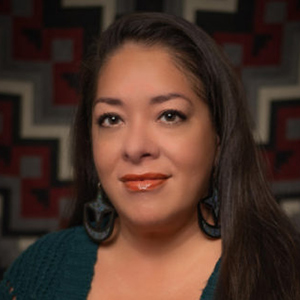
Abigail Echo-Hawk
Pawnee
Executive Vice President, Seattle Indian Health Board
Abigail Echo-Hawk, M.A., is an enrolled member of the Kitkehahki band of the Pawnee Nation of Oklahoma and a member of the Upper Athabascan people of Mentasta Village, Alaska. She was born in the heart of Alaska where she was raised with the traditional values of giving, respect for all, and love.
Echo-Hawk is the executive vice president of the Seattle Indian Health Board (SIHB) and the director of their data and research division, the Urban Indian Health Institute (UIHI). She joined SIHB and UIHI in 2016 and has focused her work on decolonizing data and ensuring urban Native people are represented in public health reporting. Echo-Hawk has been a leader in bringing the issue of Missing and Murdered Indigenous Women and Girls (MMIWG) to the forefront. She has also highlighted—on a national level—the inequities that the Native community experienced in response to the COVID-19 pandemic.
Echo-Hawk serves on numerous committees locally and nationally including the Best Starts for Kids Board, March of Dimes Health Equity Workgroup, Tribal Collaboration Working Group with the National Institutes of Health All of Us Research Program, Advisory Committee for Health Equity Research at the Robert Wood Johnson Foundation, and many more. In 2021, she received the Native Action Network Sister Spirit Award for her work with urban Indian communities.
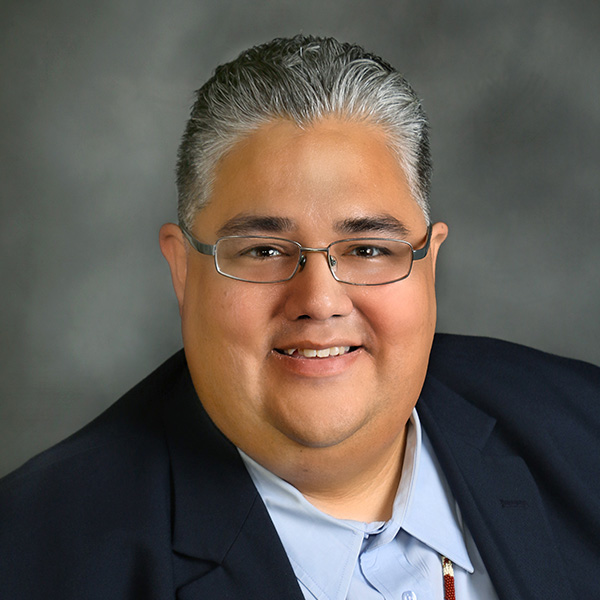
Leonard “Lenny” Fineday
Leech Lake Band of Ojibwe
Secretary/Treasurer, Leech Lake Band of Ojibwe
A licensed attorney, Leonard “Lenny” Fineday has served in Indian Country for almost 20 years in various capacities including as a tribal attorney, general counsel, and tribal court judge. In June 2022 he was elected to the position of secretary/treasurer for the Leech Lake Band of Ojibwe Business Committee. He also currently serves as a member of the Cass Lake-Bena School Board.
Fineday’s past leadership experience includes serving as the president of the Minnesota American Indian Bar Association, a member of the Cass Lake City Council, and a trustee for the Leech Lake Tribal College.
Fineday is an enrolled member of the Leech Lake Band of Ojibwe. He was born and raised in Cass Lake, Minnesota, on the Leech Lake Reservation. He is a member of the CICD Leadership Council.
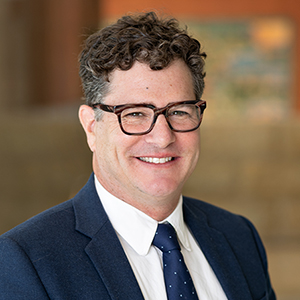
Matthew Gregg Senior Economist, CICD, Federal Reserve Bank of Minneapolis
Matthew Gregg is a senior economist in Community Development and Engagement at the Federal Reserve Bank of Minneapolis, where he focuses on research for CICD. Before joining the Bank, Gregg was an associate professor of economics at Roger Williams University and, prior to that, a visiting economics professor at Grinnell College. He has conducted research on a wide range of topics within tribal economic development and published work on historical development, Indian removal, land rights, and agricultural productivity. He is a member of the Association for Economic Research of Indigenous People.
Gregg received his Ph.D. from the University of Georgia, where he specialized in applied microeconomics and economic history.

Dawson Her Many Horses
Rosebud Sioux Tribe of South Dakota
Managing Director, Wells Fargo
Dawson Her Many Horses is a managing director at Wells Fargo, which is the leading provider of capital and financial services to the Native American and Alaska Native markets. Wells Fargo has relationships with more than 400 tribes and tribally owned enterprises, with approximately $2.5 billion in credit commitments and $2.5 billion in deposits. After joining Wells Fargo in 2018, he was appointed head of Native American Banking in 2021 before being named a managing director in 2023.
Her Many Horses’ career has spanned commercial and investment banking, with a focus on Native American gaming. He began his career at Merrill Lynch after graduating from Columbia University in 2004. Her Many Horses was appointed director of Native American business development for the investment banking, wealth management, and asset management groups at Merrill Lynch. He later moved into Merrill Lynch investment banking, where he focused on the tribal gaming market. Her Many Horses received his MBA from Dartmouth College in 2010 and rejoined Bank of America Merrill Lynch, where he was a banker on the Gaming team until 2018.
Her Many Horses is the founder of the Native American employee group at Bank of America and is chair of the Native American Visiting Committee at Dartmouth College. He is an enrolled member of the Rosebud Sioux Tribe of South Dakota.
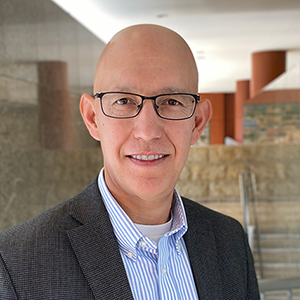
Andrew Huff
Chippewa Cree Tribe
Senior Policy and Legal Advisor, CICD, Federal Reserve Bank of Minneapolis
Andrew Huff is the senior policy and legal advisor to CICD. He is an enrolled member of the Rocky Boy’s Reservation of north-central Montana. He graduated from Harvard College in 1991 and the University of Colorado Law School in 1999.
Over the course of his legal career, Huff has served in a variety of positions, including as a tribal judge for the Rocky Boy’s Indian Reservation; as chief legal counsel to Governor Steve Bullock of Montana (2013–2017); and as an assistant attorney general for the Montana Department of Justice (2010–2012).
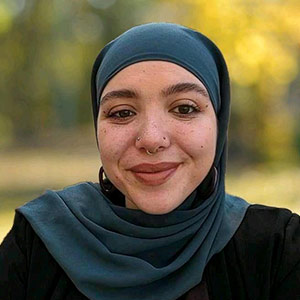
Amalea Jubara Research Assistant, CICD, Federal Reserve Bank of Minneapolis
Amalea Jubara is a research assistant with CICD. Her work focuses on the development of CICD data tools and supporting CICD’s data initiative, which aims to reduce data gaps affecting Indian Country.
Before joining CICD, Jubara received her Bachelor of Science in economics and public policy from St. Catherine University. She has held a range of research assistant positions and fellowships in the fields of economics, policy, and sociology.
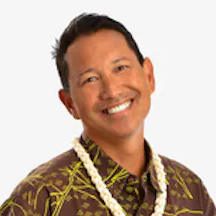
Pālama Lee
Native Hawaiian
Research and Evaluation Director, Lili‘uokalani Trust
Pālama Lee's kūpuna (elders) are from the Hawaiian Islands of Molokaʻi and Maui. His family spirit guardians are the moʻo (female lizard water dieties) and the mano (shark). He is the director of research and evaluation at Lili‘uokalani Trust, a private operating foundation created by the last sovereign monarch of Hawaiʻi, Queen Liliʻuokalani. His collaborative research focuses on uplifting the well-being of Native Hawaiian kamaliʻi (children), ʻohana (families), and kaiāulu (communities).
Lee has a Master of Social Work degree and a Ph.D. in social welfare.
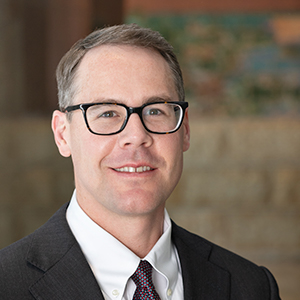
Casey Lozar
Confederated Salish and Kootenai Tribes
Director, CICD; Vice President, Federal Reserve Bank of Minneapolis
Casey Lozar is a vice president at the Federal Reserve Bank of Minneapolis and director of CICD, a research and policy institute that works to advance the economic self-determination and prosperity of Native nations and Indigenous communities. Before assuming leadership of CICD, he was assistant vice president/outreach executive in the Bank’s department of Public Affairs, and the leader of our Helena Branch.
Prior to joining the Minneapolis Fed in 2018, Lozar served in economic development and higher education roles for the State of Montana. Additionally, he held executive leadership positions in national Native American nonprofits, including the American Indian College Fund and the Notah Begay III Foundation.
He received degrees from Dartmouth College and Harvard University and an MBA from the University of Colorado-Denver. He serves on the Montana Board of Regents of Higher Education (past chair).
Lozar is the 2021 recipient of the Janet L. Yellen Award for Excellence in Community Development and a 2022 recipient of the Honorary Leadership Award from the Native American Finance Officers Association.
A Montana native, he was raised on the Flathead Indian Reservation and is an enrolled member of the Confederated Salish and Kootenai Tribes.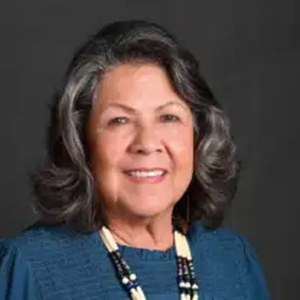
VaRene Martin
Mvskoke Nation
Board First Vice President and Director of Tribal and Corporate Relations, NAFOA
VaRene Martin is an enrolled citizen of Thlopthlocco Tribal Town, Mvskoke (Creek) Nation. She serves on the board of NAFOA as the First Vice President and director of tribal and corporate relations. She also acts as a tribal advisor at FS Advisors in a business development capacity.
Martin serves as an advisory board member for the American Indian Chamber of Commerce of California and the American Indian Chamber of Commerce of Oklahoma. She co-chairs the National Congress of American Indian’s (NCAI’s) Economic Development, Finance, and Employment Subcommittee and has served on the board for the San Diego American Indian Health Center.
Martin attended Oklahoma State University. She holds a California Life Insurance National Association of Securities Dealers (NASD) series 65 license, and previously held series 6, 7, and 63 licenses. She has more than 30 years of experience in the financial and investment industries including managerial positions focusing on institutional sales, public funds, and Native American marketing efforts.
Martin was recognized as one of the “Fifty Faces of Indian Country” by Indian Country Today, has been featured in the Indigenous Post “Annual Hot List,” and was a 2020 AARP Oklahoma Indian Elders honoree.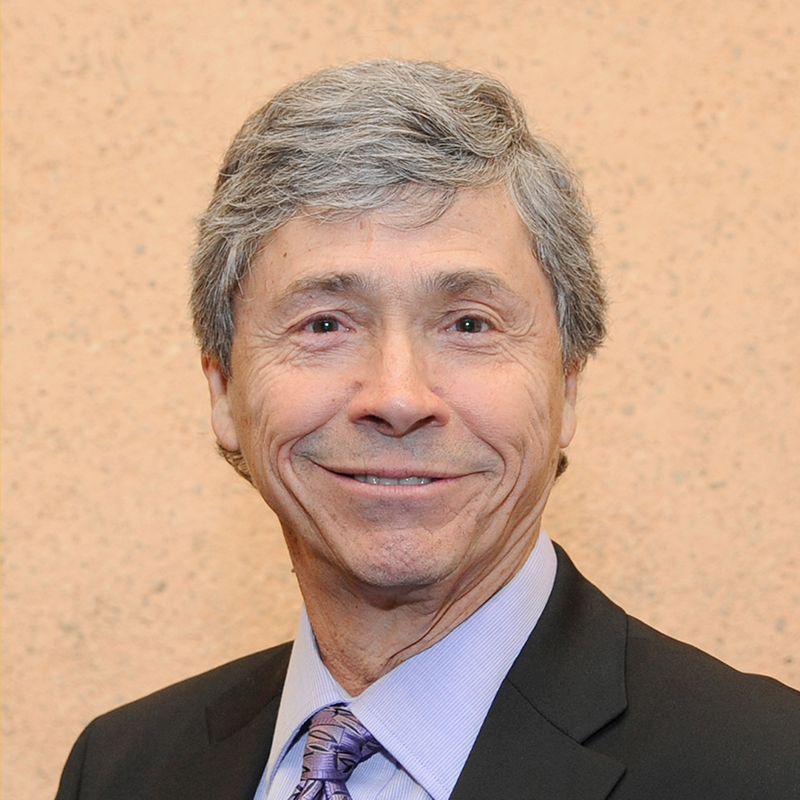
Robert Miller
Eastern Shawnee Tribe
Professor, Sandra Day O’Connor College of Law, Arizona State University
Robert Miller is the Willard H. Pedrick Distinguished Research Scholar and the faculty director of the Rosette LLP American Indian Economic Development Program. He is the chief justice for the Pascua Yaqui Tribe Court of Appeals and an appellate judge for other tribal courts. Miller was elected to the American Philosophical Society in 2014, the oldest learned society in the United States.
He has written dozens of articles on Indian law issues and has authored or co-authored four books, including Reservation “Capitalism”: Economic Development in Indian Country (Praeger Publishers 2012) and Creating Private Sector Economies in Native America: Sustainable Development Through Entrepreneurship (Cambridge University Press 2019).
Miller is a citizen of the Eastern Shawnee Tribe. He is a member of the CICD Leadership Council.
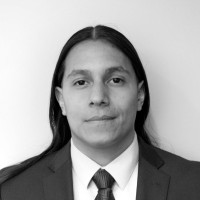
John Morseau
Pokagon Band of Potawatomi
Senior Policy Analyst, CICD, Federal Reserve Bank of Minneapolis
John Morseau is a senior policy analyst at CICD, where he focuses on CICD’s tribal financing, credit, and taxation portfolios of work. He is also an attorney and has previously served with Michigan Indian Legal Services, Orsted Americas, and the Pokagon Gaming Authority Board.
Morseau is an at-large member of the Pokagon Band of Potawatomi Indians tribal council and previously served on the tribe’s executive governing body.
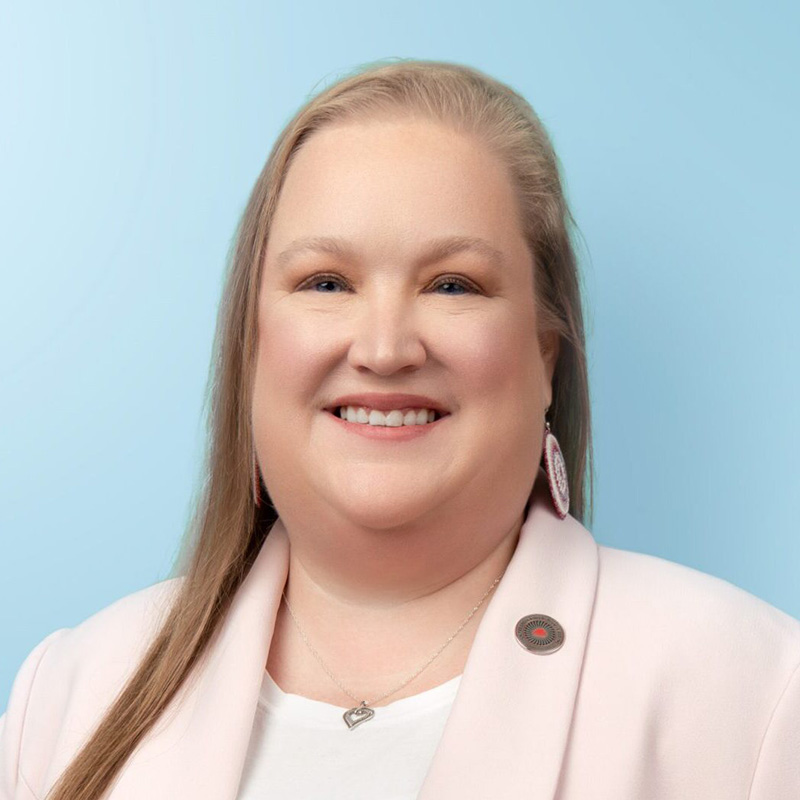
Rebecca Naragon
Poarch Band of Creek Indians
Economic Development Director, United South and Eastern Tribes
Rebecca Naragon is United South and Eastern Tribes’ (USET’s) economic development director. Over the past few years, USET's Office of Economic Development has been working with USET’s Office of Environmental Resource Management (OERM) and Climate Change program to facilitate training workshops and camps, resource and network brokering, and supply chain technical assistance in support of community and business recovery activities. Naragon is a Certified Economic Developer (CEcD)
She is a citizen of the Poarch Band of Creek Indians.
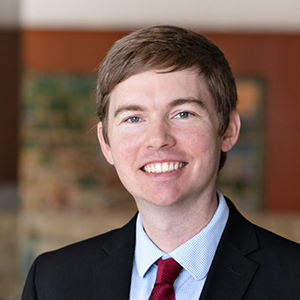
Ryan Nunn Assistant Vice President, Community Development and CICD, Federal Reserve Bank of Minneapolis
Ryan Nunn leads applied research in Community Development and Engagement and CICD at the Federal Reserve Bank of Minneapolis. His team works to supply policymakers and practitioners with evidence that can inform decision making and improve outcomes for low- and moderate-income communities.
Before coming to the Bank, Nunn was a fellow in economic studies at the Brookings Institution and policy director for the Hamilton Project. Prior to that, he was an economist at the U.S. Department of the Treasury. Nunn’s work has focused on analysis of labor market trends and institutions. He has published research in journals including Labour Economics, the European Economic Review, and the Annals of the American Academy of Political and Social Science.
Nunn received his undergraduate degree in economics from Case Western Reserve University and his Ph.D. in public policy and economics from the University of Michigan, Ann Arbor.
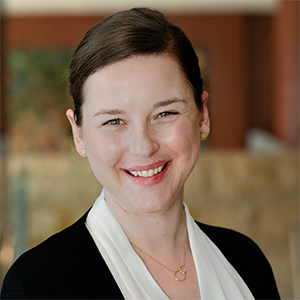
Vanessa Palmer Data Director, CICD, Federal Reserve Bank of Minneapolis
Vanessa Palmer is CICD’s data director. She supports CICD’s mission to increase economic inclusion and long-term prosperity in Indian Country by leading efforts to collect, harmonize, and sustainably manage research-ready data. She also contributes to CICD’s work as an applied researcher, using statistical tools and data visualization to help stakeholders better understand issues affecting Indian Country.
Palmer joined the Minneapolis Fed in 2020 as a data scientist. Her prior professional roles focused on supporting a range of organizations—primarily in public education—in designing systems and using data to make evidence-based decisions. She holds a bachelor’s degree from the University of Washington and a master’s degree from the Harvard T.H. Chan School of Public Health.
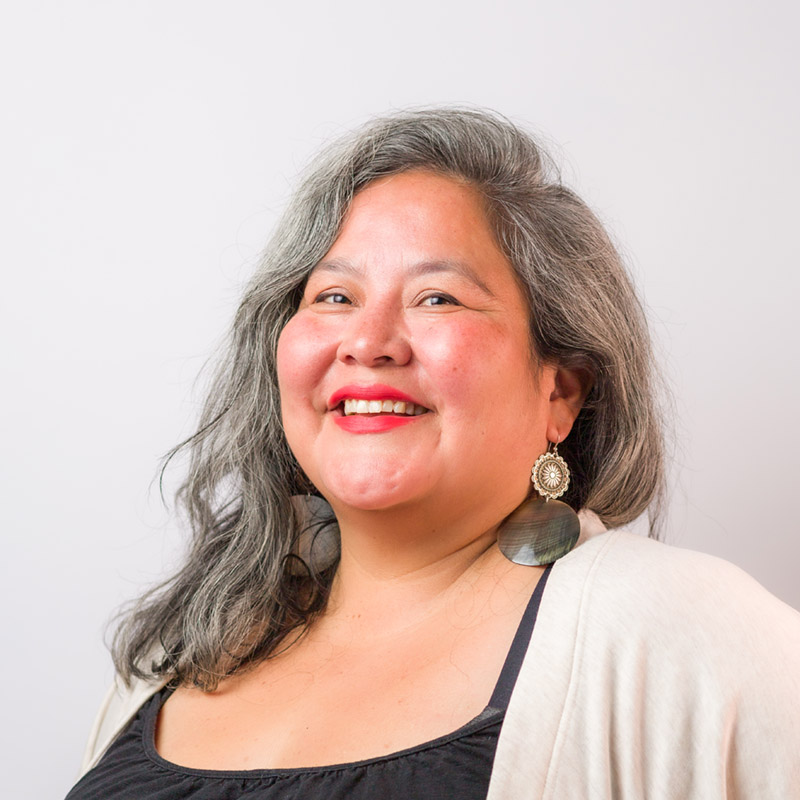
Vanessa Roanhorse
Diné
CEO, Roanhorse Consulting, LLC
Vanessa Roanhorse is the CEO of Roanhorse Consulting, LLC, an Indigenous-led firm that works to change power dynamics in health and economic systems to build a world in which our children and grandchildren will thrive.
She sits on the boards of Delta Institute, Seven Fires, and Potlikker Capital. She also serves as an advisor to We Write the Future, the Decolonizing Wealth Project, the Investment Integration Project working group, and the BOOST initiative. Roanhorse is a recipient of the 2022 Miss Porter’s School Evan Burger Donaldson Award, 2021 PayPal Maggie Lena Walker’s Emerging Leader Award, and 2020 Conscious Company Media’s World Changing Woman in Sustainable Business Award, and has been a Purpose Futures Fellow and Boston Impact Initiative Fellow. She is a founding member of Zebras Unite Co-op and a co-founder of Native Women Lead.
She is a citizen of the Navajo Nation and resides on Tiwa Territory in Albuquerque, New Mexico.
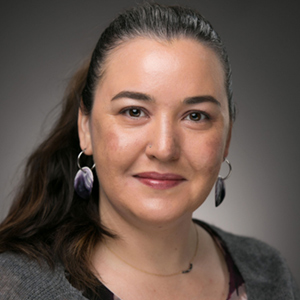
Amber Schulz-Oliver
Yakama/Wasco
Executive Director, Affiliated Tribes of Northwest Indians
Amber Schulz-Oliver is the executive director of the Affiliated Tribes of Northwest Indians (ATNI), an organization dedicated to promoting tribal self-determination and sovereignty and serving 57 tribal nations in the Pacific Northwest. She previously served as executive director of the ATNI Economic Development Corporation and its subsidiary Community Development Financial Institution (CDFI), ATNI Financial Services.
Schulz-Oliver received a Bachelor of Arts from Oberlin College and an MBA from Willamette University. She serves on the boards of several organizations, including the Potlatch Fund, Nch’i Wana Housing, Oregon Growth Board, Ecotrust Community Development Entity, and Ecotrust Investments. She is committed to environmental stewardship, sustainability, and service to the Native community.
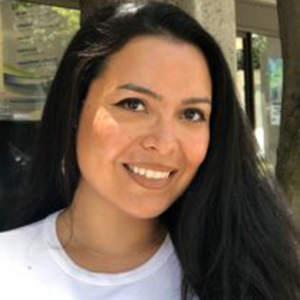
Darien Siguenza
Chamorro
Program Director, Hawai‘i FoundHer
Darien Siguenza is a business development professional with a deep passion for supporting ventures founded by women and people of color. She currently leads the Hawaiʻi FoundHer program, which focuses on uplifting wāhine (female) entrepreneurs who are grounded in Hawaiʻi. She has also supported more than 100 start-up companies while working at Los Angeles Cleantech Incubator and Elemental Excelerator.
Siguenza earned her master’s degree in global leadership and sustainable development at Hawaiʻi Pacific University. She is originally from Los Angeles.
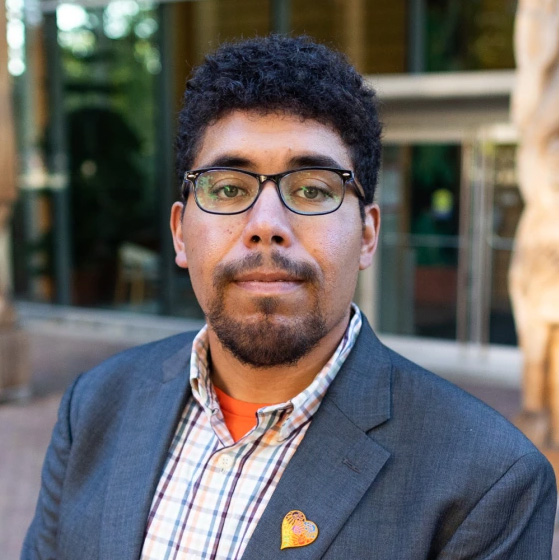
Niiyokamigaabaw Deondre Smiles
Leech Lake Band of Ojibwe
Assistant Professor of Geography, University of Victoria
Niiyokamigaabaw Deondre Smiles is an Indigenous geographer with multifaceted research interests including Indigenous geographies and epistemologies, science and technology studies, and tribal cultural resource preservation and protection. Smiles is an assistant professor in the Department of Geography at the University of Victoria in British Columbia.
Smiles received a bachelor’s degree in geography from St. Cloud State University (2013), a master’s degree in global Indigenous studies from the University of Minnesota Duluth (2016), and a Ph.D. in geography from The Ohio State University (2020), where Smiles also spent a year as a President’s Postdoctoral Scholar in the Department of History.
Smiles holds a number of leadership roles for the American Association of Geographers and is a member of the Native American and Indigenous Studies Association and the Canadian Association of Geographers. Smiles also serves as the principal investigator of the Geographic Indigenous Futures Collaboratory (GIF Lab), which focuses on Indigenous geographic methods and collaborations with Indigenous communities, in addition to holding an affiliation with the University of Victoria’s Health, Environments, and Communities Research Lab (HEC Lab) and the University of British Columbia’s Egesta Lab. Smiles also serves on the editorial board of the journal Native American and Indigenous Studies and on the Leech Lake Tribal College board of trustees.
Smiles is of Ojibwe, Black, and Swedish descent and is a citizen of the Leech Lake Band of Ojibwe.
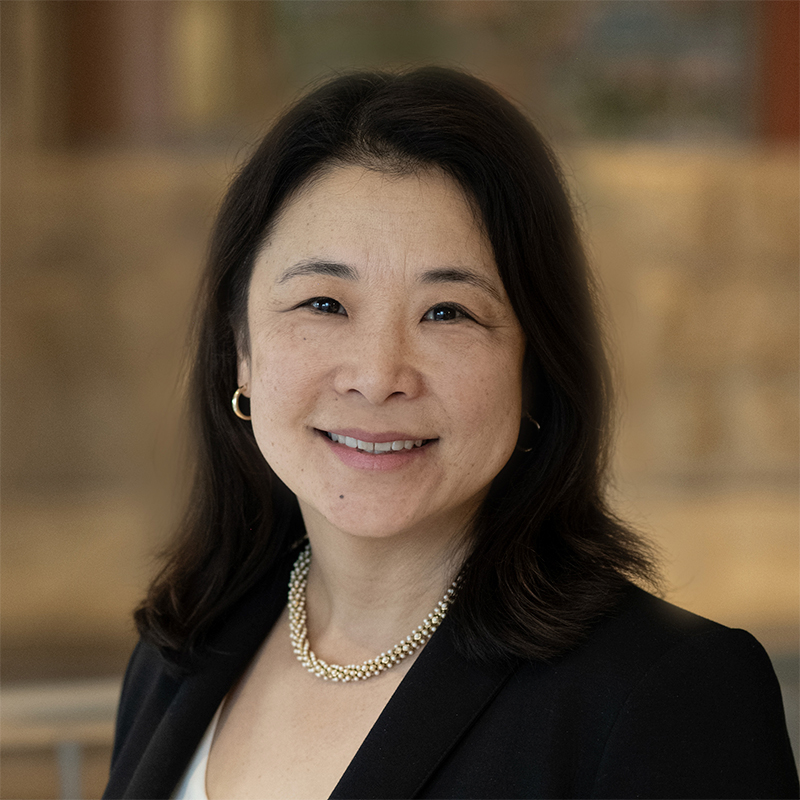
Alene Tchourumoff Senior Vice President, Community Development and CICD, Federal Reserve Bank of Minneapolis
Alene Tchourumoff, senior vice president of Community Development and CICD, leads the Bank’s engagement with communities throughout the Ninth District to promote economic opportunity for low- and moderate-income people and those living in Indian Country. Key focus areas include early childhood development and affordable housing.
Prior to joining the Bank in December 2018, Tchourumoff served as chair of Minnesota’s Metropolitan Council, where she built strong partnerships with local governments and community groups to advance transit, housing, and other critical infrastructure. Previously, she served as Minnesota’s first state rail director, led Hennepin County Public Works’ Planning Department, and worked extensively in China and Southeast Asia on public policy and public health initiatives—including combating HIV/AIDS in China and Vietnam.
Tchourumoff holds a bachelor’s degree in business administration from George Washington University School of Business and a master’s degree in public policy from Harvard University’s Kennedy School of Government.
She was named a 2020 Women in Business honoree by the Minneapolis-St. Paul Business Journal and is a member of the Minnesota State Attorney General’s task force dedicated to improving women’s economic security.
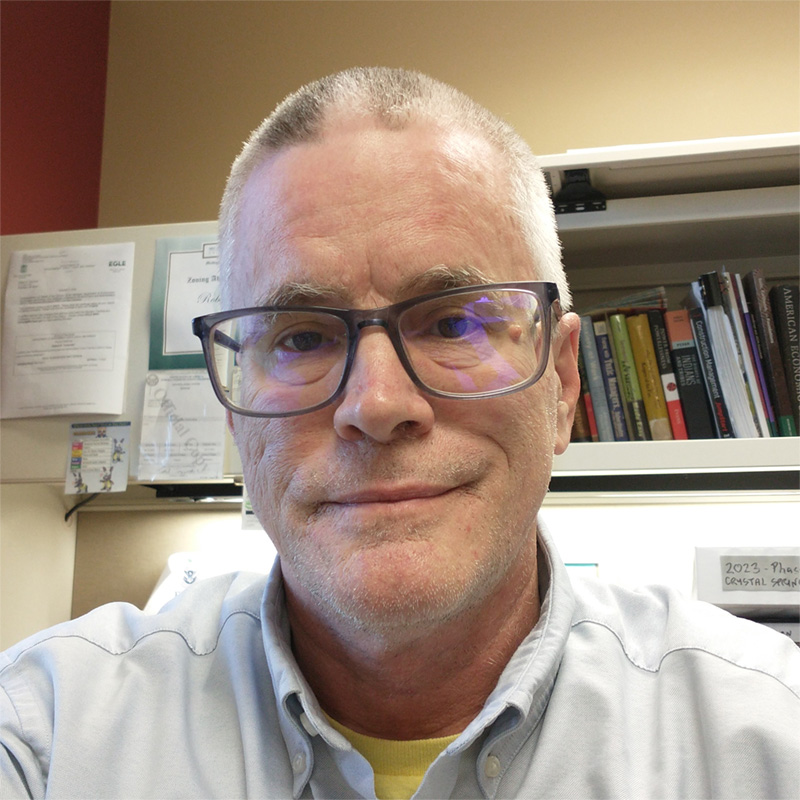
Robert Torzynski Planning Manager, Pokagon Band of Potawatomi Indians
Robert Torzynski has served as a professional planner for three decades for organizations in California, New York, and Michigan. His areas of specialty include environmental, air quality, transportation, and tribal planning.
Torzynski earned a master’s degree in city and regional planning from California State University, Fresno. He has been a member of the American Institute of Certified Planners since 1998. Since 2017, he has served as the planning manager for the Pokagon Band of Potawatomi Indians.
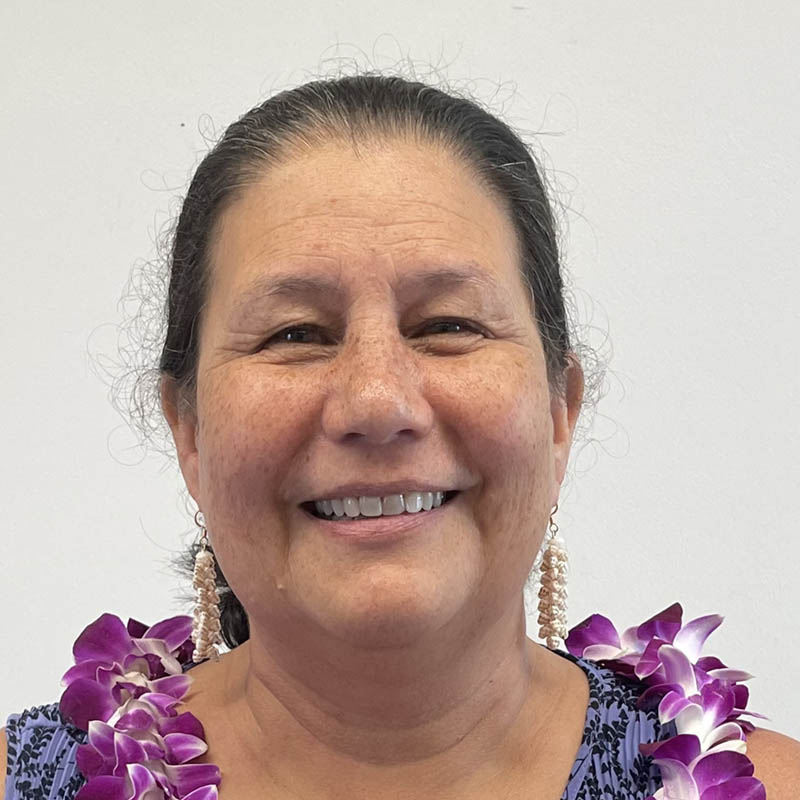
Lisa Watkins-Victorino
Native Hawaiian
Community partner
Lisa M. Watkins-Victorino received her Ph.D. in psychology from the University of Hawaiʻi where she worked for 12 years as a junior specialist in the School of Social Work coordinating evaluation and research projects. She joined the Hawaiʻi Department of Education (HIDOE) in 2003 and served as an educational officer for nine years, responsible for the implementation, analysis, and reporting of statewide educational accountability projects.
Watkins-Victorino joined the Office of Hawaiian Affairs in 2012 as the director of research. In this role she provided oversight of research projects associated with strategic plan priorities in the areas of land, culture, history, demography, economic stability, education, and health, as well as leading other designated projects. During this time, she served on multiple committees and task forces, including the Native Hawaiian Data Portal.
Watkins-Victorino recently rejoined HIDOE and serves as the director of the Assessment and Accountability Branch where she is responsible for oversight of the department’s accountability and related data-processing systems as well as statewide student assessment system services.